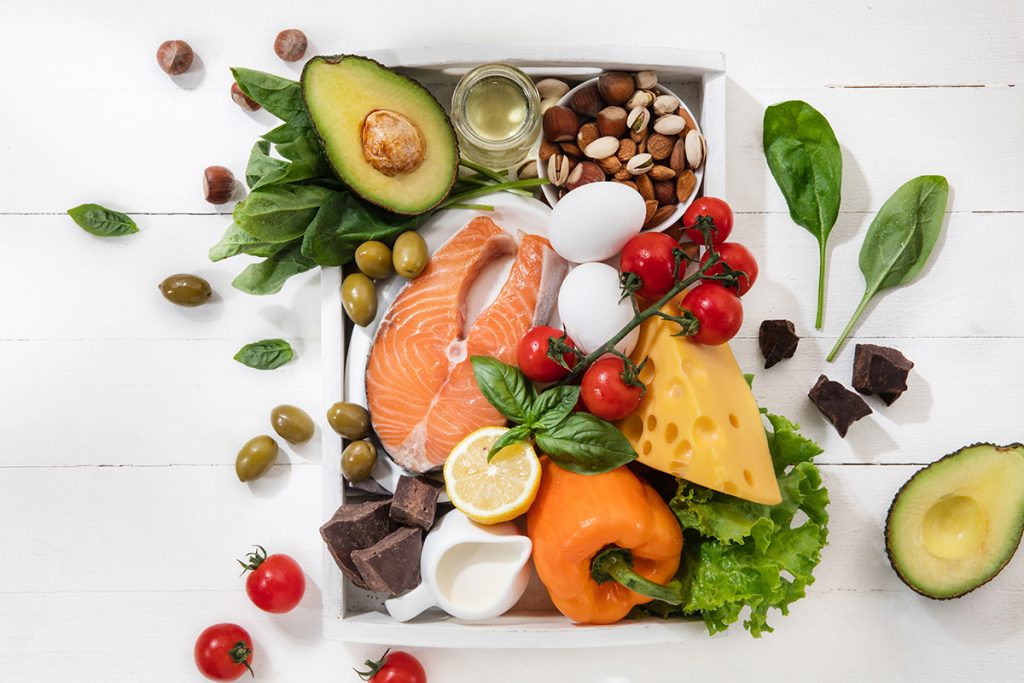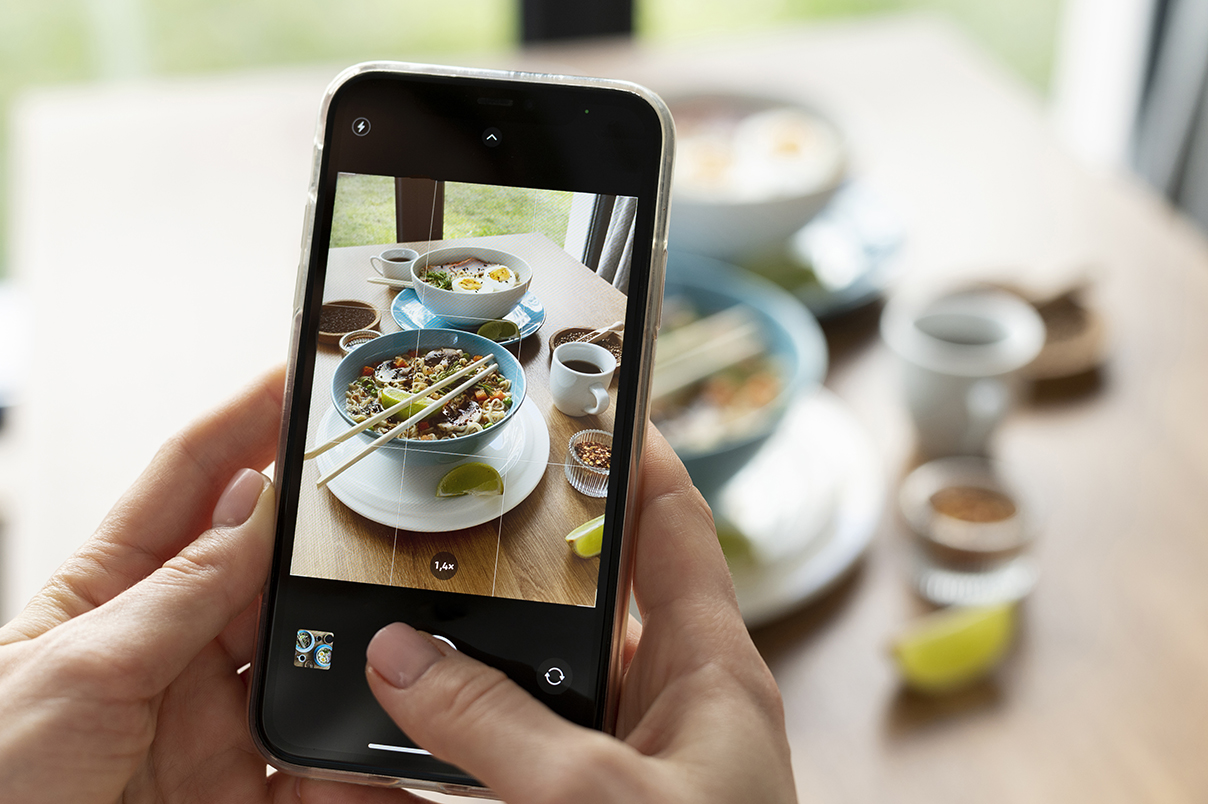Intuitive eating: A quick guide

Intuitive eating may sound like another passing diet trend, but it’s actually a unique approach to eating that stands apart from the rest. Unlike fad diets, this philosophy is compassionate, gradual, and enduring.
Dr. Susan Albers, a psychologist, delves into what intuitive eating means, the benefits it can bring, and how you can start incorporating its principles into your lifestyle.
What is intuitive eating?
Dr. Albers explains that intuitive eating is the complete opposite of dieting because instead of imposing restrictions and following rules, it relies on your internal cues such as hunger, fullness, and satiety to determine what and how much to eat. With intuitive eating, no foods are considered off-limits.
The term ‘intuitive eating’ was coined by registered dietitian Evelyn Tribole and nutrition therapist Elyse Resch in their book Intuitive Eating, published in 1995. Their work built upon prior research and clinical studies conducted by others.
Numerous studies, over 125 in total, have investigated intuitive eating. In a review of 97 of these studies, it was found that intuitive eating is linked to positive body image and self-esteem, lower occurrences of disordered eating, and higher levels of overall well-being.
Dr. Albers emphasizes that intuitive eating is all about creating a peaceful relationship with food, learning how to listen to your body, and honoring your hunger.

The 10 principles of eating intuitively
Intuitive eating requires unlearning the negative beliefs about food and eating that society has instilled in us. According to Dr. Albers, “We all have an inner eater, but it’s obscured by diet culture.” Unlike diets that impose rules, intuitive eating involves paying attention to your body’s hunger signals.
If you have a history of dieting and adhering to strict food regulations, it may be difficult to identify and trust your natural hunger cues. Dr. Albers recommends starting with a 10-day challenge rather than attempting to make an abrupt change.
“Each day, focus on one of the principles,” she advises. “Notice how it comes up, how you can put it into practice, some of your challenges and struggles, and how it improves your life.”
Dr. Albers outlines the principles of intuitive eating and offers guidance on integrating them into your daily routine.
Reject the diet mentality
Have you ever observed the constant stream of messages you receive about food and dieting from sources such as social media, advertisements, and casual conversations with friends? The latest diet fads and products seem to be ubiquitous.
Dr. Albers explains that rejecting the diet mentality requires letting go of anything related to dieting. It means recognizing and deliberately rejecting diet culture, and everything that harms your body.
For instance, an ad may claim that peanut butter is a fattening food. However, if you recognize this as diet culture, you might continue to enjoy peanut butter because it is a food you love.
To put this insight into practice, you can strive to recognize instances in which diet culture influences you. Dr. Albers recommends an exercise called ‘I Spy Diet Culture’, in which you take note of the frequency with which you encounter diet-related ads, articles promoting unhealthy eating habits, and language that celebrates weight loss, such as the term ‘skinny jeans’.
“You’ll be amazed how often it pops up, seemingly everywhere you look,” she says.
Honor your hunger feeling
Years of dieting can result in disregarding our body’s hunger signals. However, hunger is a biological response, and we wouldn’t think of ignoring our other physiological responses such as breathing, blinking, or the urge to urinate. Unfortunately, ignoring hunger has become a common practice.
Dr. Albers emphasizes that hunger is not something to be feared or avoided. Instead, intuitive eating involves recognizing hunger cues and responding to what the body requires.
For instance, if you know that hunger makes you feel irritable, you might carry a bag of mixed nuts in your purse to snack on when you sense hunger coming on.
Dr. Albers suggests asking yourself, “The key to living this principle is to ask yourself: What are you hungry for? And what is your hunger telling you that you need or want?” As simple as it sounds, practice eating when you’re hungry and trying to figure out what food your body is asking for.

Make peace with your food
You may have imposed strict dietary rules such as avoiding bread or not eating after a certain time. Intuitive eating encourages you to break those rules and remove them from your mindset altogether.
According to Dr. Albers, “making peace with food means to stop fighting with it”. This involves eliminating the language that suggests a negative relationship with food, such as “I can’t eat that” or “I shouldn’t have this”.
As an example, suppose you always eat brown rice instead of white rice, even though you prefer the taste of white rice. In that case, you might begin to swap in white rice occasionally, recognizing that your overall eating habits impact your health more than any single meal.
To put intuitive eating into practice, start replacing judgmental thoughts with positive ones such as “I can” instead of “I could never”. Dr. Albers emphasizes the importance of being kind to yourself while making an effort to recognize and eliminate negative thoughts.
“This can be a radical shift for people who avoid certain foods out of shame or guilt,” Dr. Albers notes.
Challenge the food police
Do you ever find yourself feeling guilty after indulging in a slice of cake or congratulating yourself for making a healthy food choice? If you have, then you may have experienced the food police – the inner voice that critiques and judges your food choices.
According to Dr. Albers, these food rules are not binding laws, but they can feel very punitive if you do not follow them. Changing the way you think about food is essential since food is neither good nor bad.
Example: When you crave chocolate, you buy a small chocolate bar and relish every bite, feeling happy and content, instead of feeling guilty or ashamed.
Take action by identifying the source of the food police’s voice. Is it coming from your own inner critic, or is it an external voice like a family member or partner who makes critical comments about your weight or food choices?
Once you pinpoint the rules, you can start breaking them down. Ask yourself why you created these food rules in the first place and whether they are helpful or not. According to Dr. Albers, most of these rules are arbitrary and unhelpful, so it’s important to challenge and let go of them.

Discover the satisfaction
Can you discern what you are truly craving versus what you believe you should eat? Often, we prioritize what we think we should eat over what we actually want. But eating is not just a biological need; it’s also an opportunity for pleasure and satisfaction.
Dr. Albers emphasizes that eating should be an enjoyable experience that includes indulging in pleasurable foods. If you find yourself unsatisfied with what you’re eating, it might be a sign that you’re not giving yourself what you need at that moment.
For instance, if you’re craving something crunchy and healthy, try satisfying that desire with some celery sticks and peanut butter or some carrots with hummus.
To implement this principle, ask yourself these questions before and during your meal: Is this food what I really want? Am I feeling satisfied by what I’m eating? Is there something else that could satisfy me better?
Feel your fullness
Principle five focuses on mental satisfaction, while principle six emphasizes physical satisfaction. It’s important to consider whether the food you’re eating is providing your body with what it needs. Dr. Albers notes that “your body gives you signals that it is hungry and full”.
For instance, if you’re feeling full even though there’s still food on your plate, it’s okay to stop eating instead of forcing yourself to finish everything, like you may have been taught in the past.
To put this principle into action, Dr. Albers suggests checking in with your body to identify cues of fullness and physical satisfaction. Does what you’re eating match your hunger and make you feel good?
To do this, rate your current hunger level on a scale of one to ten, with one being extremely hungry and ten being overly full.

Cope with your emotions with kindness
Food cannot solve emotional issues. However, we often turn to food when we feel bored, anxious, sad, or stressed. In principle seven, the focus is on finding alternative ways to handle these emotions without using food.
According to Dr. Albers, “food and feelings are so intertwined”. Therefore, it’s essential to find healthy and positive ways to nurture, distract, comfort, and cope with your emotions.
Example: When feeling stressed, instead of reaching for candy, you realize that what you need is a way to relax and reduce your stress. You decide to meditate, which helps you calm down and feel better.
So, when you feel the urge to eat for emotional reasons, take a moment to pause and check in with yourself. Ask yourself, “What am I really feeling?” Then try to find an activity that helps you cope with that emotion in a healthier way than turning to food.
To put this principle into practice, create a list of alternative activities that can help you cope with your emotions, such as yoga, reading, or taking a walk. When you feel the urge to eat due to emotional reasons, take a moment to identify your feelings.
Rather than immediately reaching for food, pause and ask yourself, “What am I feeling and what does this emotion require?” according to Dr. Albers. This approach will help you differentiate between emotional hunger and physical hunger cues.
It’s important to note that sometimes food can be the answer, and that’s perfectly fine. As Dr. Albers assures, occasional stress-eating is acceptable, but if you frequently turn to food for comfort, it can become a bigger problem.
Respect your body
To achieve a healthy body image, it’s important to acknowledge that genetics play a significant role in determining one’s size and shape, in addition to diet and exercise.
Dr. Albers emphasizes the importance of embracing body diversity and recognizing that all bodies are worthy of appreciation. For instance, instead of clinging to clothing items that no longer fit, it’s better to donate them and find clothes that fit well and feel comfortable.
To put this principle into practice, individuals can strive for body neutrality instead of immediately attempting to achieve body positivity. Dr. Albers suggests that accepting the body for what it does and how it supports an individual can be a simpler starting point for those struggling with body image issues, especially in the face of pervasive diet culture.

Movement
Blaming diet culture for associating exercise with dread, this principle suggests a different approach. Rather than viewing exercise as a means of burning calories, intuitive eating recognizes movement as something that feels good.
According to Dr. Albers, “Intuitive eating encourages you to do movements that bring you joy. It’s about movement, not exercise, as exercise can often make people think they need to sweat and burn calories”.
For example, instead of forcing yourself to run, you choose to go for a walk since it makes you happy, despite burning fewer calories.
To put this principle into action, try out different movements that you find enjoyable, whether it’s playing a sport, walking your dog, or dancing. Dr. Albers suggests paying attention to how your body feels when you’re active.

Honor your health with gentle nutrition
Intuitive eating doesn’t require you to ignore everything you know about nutrition, as the other nine principles help you listen to your internal needs. Instead, this principle encourages you to rely on scientific knowledge to understand your body’s requirements.
“Understanding the science of food can help us comprehend how different foods affect our appetite, well-being, and satiety”, explains Dr. Albers.
For instance, you may observe that you feel hungry right after having toast for breakfast. To address this, you start adding peanut butter to your toast, which keeps you full for an extended period.
To apply this principle, you need to combine your internal (how you feel about your food choices) with the external (scientific knowledge about food) to determine the food options that fulfill your requirements.
Is intuitive eating the same as mindful eating?
Intuitive eating and mindful eating share a lot of similarities in terms of promoting conscious awareness of one’s internal and external experiences related to food. Mindful eating encourages paying attention to various aspects of the eating experience such as taste, emotions, thoughts, and the body’s response to food.
The main distinction between the two approaches is that intuitive eating has ten principles and explicitly rejects diet culture.
According to Dr. Albers, “Both intuitive eating and mindful eating aim to help people respect, recognize and respond to their hunger in mindful ways. You can practice both approaches concurrently to cultivate a more mindful relationship with food”.

Can intuitive eating help you lose weight?
Dr. Albers points out that if you’re turning to intuitive eating solely for weight loss, you may be disappointed with the answer: “Intuitive eating isn’t about weight loss,” she emphasizes. “Weight loss is a part of diet culture that can lead to negative feelings such as shame and guilt. Instead, the focus is on improving your overall health and happiness when it comes to food.”
It’s true that some individuals may lose weight as they adopt intuitive eating by eliminating unhealthy eating habits such as binge-eating. However, others may experience weight gain, particularly if they have a history of dieting or food restriction.
“It’s important to understand that your body is unique and will respond differently,” Dr. Albers clarifies. “This can be hard to accept, especially if you’re used to the diet mentality that promises quick fixes and rapid weight loss.” While intuitive eating doesn’t promise rapid weight loss, it offers a healthier and more sustainable approach to your relationship with food and your body. This can lead to greater happiness and satisfaction with food in the long term.



















